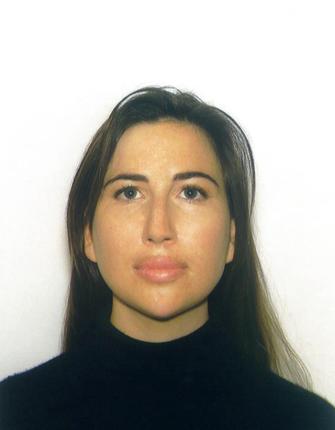
Languages
Spanish
Jobs Completed
8
Job Success Rate
100%
Usually responds
Within an hour
Want a profile like this one?
Join thousands of news professionals who use Paydesk to showcase their work and get hired by top media outlets.
Get Started
See how it works
Book Hannah with Paydesk
Make your booking securely through paydesk for these benefits:
1
Preferred Booking Channel
Hannah is more likely to commit to assignments booked through paydesk, as it is a trusted platform that validates the seriousness and legitimacy of each engagement.2
Insured Bookings for Peace of Mind
We provide basic insurance coverage with each booking on paydesk, giving both you and the media professional confidence and protection while they work for you.3
Effortless Online Payment
Paydesk offers a payment protection system to ensure payments are only finalized when you are satisfied with the job completion. Freelancers trusts our process that guarantees their efforts are rewarded upon successful delivery of servicesStill have questions?
Check FAQAbout Hannah
Hannah McCarthy is a journalist based in Beirut, Lebanon.
Video Package (Web / Broadcast)
Fact Checking
Fact Checking
Portfolio
Sed ut perspiciatis unde omnis iste natus error sit voluptatem accusantium
doloremque laudantium,
totam rem aperiam, eaque ipsa quae ab illo inventore veritatis et quasi architecto beatae vitae dicta sunt explicabo. Nemo enim ipsam voluptatem quia voluptas sit aspernatur aut odit aut fugit, sed quia consequuntur magni dolores eos qui ratione voluptatem sequi nesciunt. Neque porro quisquam est, qui dolorem ipsum quia dolor sit amet, consectetur, adipisci velit, sed quia non numquam eius modi tempora incidunt ut labore et dolore magnam aliquam quaerat voluptatem. Ut enim ad minima veniam, quis nostrum exercitationem ullam corporis suscipit laboriosam, nisi ut aliquid ex ea commodi consequatur?
doloremque laudantium,
totam rem aperiam, eaque ipsa quae ab illo inventore veritatis et quasi architecto beatae vitae dicta sunt explicabo. Nemo enim ipsam voluptatem quia voluptas sit aspernatur aut odit aut fugit, sed quia consequuntur magni dolores eos qui ratione voluptatem sequi nesciunt. Neque porro quisquam est, qui dolorem ipsum quia dolor sit amet, consectetur, adipisci velit, sed quia non numquam eius modi tempora incidunt ut labore et dolore magnam aliquam quaerat voluptatem. Ut enim ad minima veniam, quis nostrum exercitationem ullam corporis suscipit laboriosam, nisi ut aliquid ex ea commodi consequatur?

Want to see more portfolio samples?
Sign up to paydesk, it’s free!
Log In
Sign Up
 Hire Now
Hire Now
 Message Hannah
Message Hannah